Quote:
Originally Posted by GregWeld

Again -- on the educational side of this only -- I disagree -- but with the following differences -- again because when we make big statements - we need (in this thread) to make sure people understand the THOUGHT behind such.
There would be absolutely ZERO advantage to hold tax free muni bonds in a tax advantaged account (which means tax deferred really) because there is no tax due. That holding would be best held in an ordinary account because it's not going to affect your taxes.
IF -- BIG IF -- these BONDS are CORPORATE BONDS -- then that is different because that INTEREST paid is taxable at ordinary income tax rates. It would - of course - be TAX DEFERRED if held in an IRA/401 type account.
|
Good point about Muni's. Obviously (though I now hestitate to use that word :p) you don't want to hold tax free investments in your tax advantaged retirement accounts like IRA/401K's.
Quote:
Originally Posted by GregWeld

A "GROWTH STOCK" (pays no dividend for this discussions sake) -- or let's really just say ANY STOCK that has a GAIN - has NO TAXABLE EVENT if it's not sold - i.e., the gain is NOT REALIZED... that stock can grow to the moon and have no tax consequence until you sell. SO the major difference in where you'd hold this type of stock is not really important under current (I should underline that! CURRENT) tax law. LONG TERM GAINS are currently taxed at 15% regardless. Only SHORT TERM GAINS (held less than one year and a day) are taxed at ordinary income tax rates.... So if your mother is 80 and has virtually no income - and you sell 10 grand of her long term holdings - big deal - she pays 15%! And it would be less of a big deal if you sold something short term because she may have NO TAX DUE based on her income. But these are CPA discussions not really "investing" except that they can affect your return so are worth talking about.
But now we're having a tax discussion -- rather than an INVESTING 102 discussion....
|
True you are now having tax discussions but I still think that even at the investing 102 level that its worth touching on. What you said above does matter. Your 80 year old mother would only pay the 15% long term capital gains tax if it was in an after tax account. If that stock was in a traditional IRA (as opposed to ROTH) it would be subject to ordinary income. The 80 year old Mom could be much better off having the stock with big gains in an after tax (non IRA/401K type retirement) account in this example (depending on other assumptions).
To take that one step farther if she did own bonds or high dividend stocks (maybe steady eddy's that don't have large capital gains) she would be better off having those in the IRA/401K accounts.
Of course this matters most for retirement investing, vs. just plain old investing so I won't try to clutter up the thread with it.
Quote:
Originally Posted by GregWeld

Here's something I've had to tell my CPA - and trust me when I tell you that my tax bill is beyond ridiculous.... so we have LOTS of discussions of where, when, why and how come!
"If I make a buck and have to pay the gubment 40 cents of it -- I still made 60 cents.... right?"
Isn't it better that I make 60 cents than nothing at all?
Frankly -- I'm happy as hell my tax bill is huge - 'cause that means I made a killing! And "they" only got a small percentage of it. The rest is all mine!  
EEEEEEEEEEEEEEEEHHHHHHHHHHHHAAAAAAAAAA |
Of course it is better to make money and be taxed than to make no money at all. But, that fact alone doesn't mean you shouldn't minimize the tax bill when decisions you make can influence it.
Let me be clear. All of the previous discussion I've contributed regarding taxes and tax advantaged accounts like IRA's is on the basis that you have a diversified portfolio of investments that includes bonds and equities and that some of those equities are growth stocks. This describes most people saving for retirement in modern day America through a 401K plan. Under that scenario the type of account you hold investments in matters.
If anyone is really interested in tax efficiency of their investments I suggest visiting the following link (just one of many good explanations, fund biased).
http://www.bogleheads.org/wiki/Princ...Fund_Placement
Below is an illustration of what I've been trying to convey (fund biased, but you can substitute most of the "funds" verbiage with "stocks" and get the same answer).
